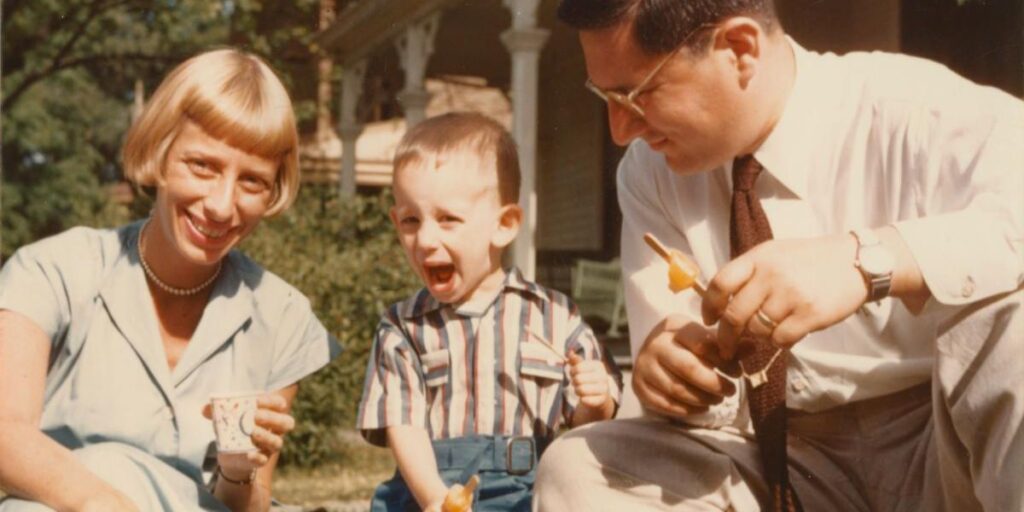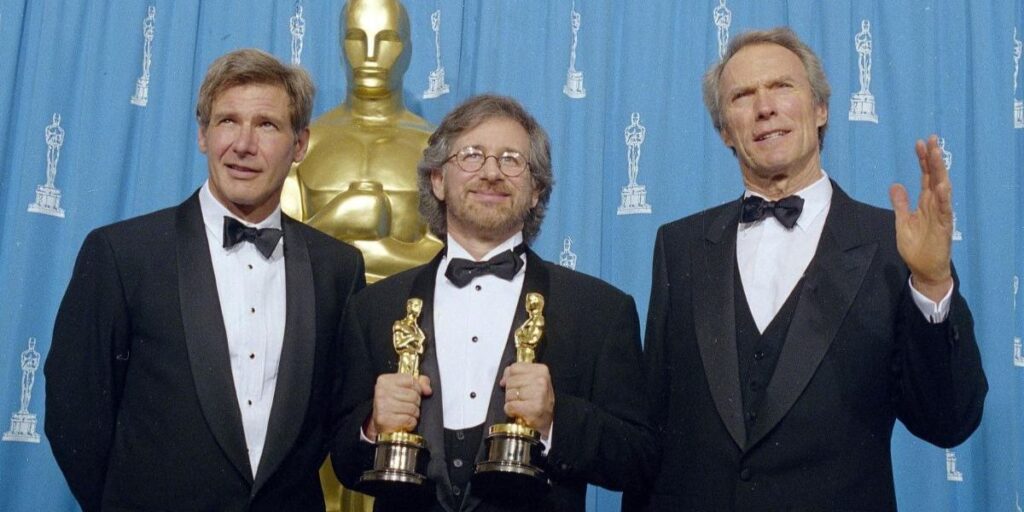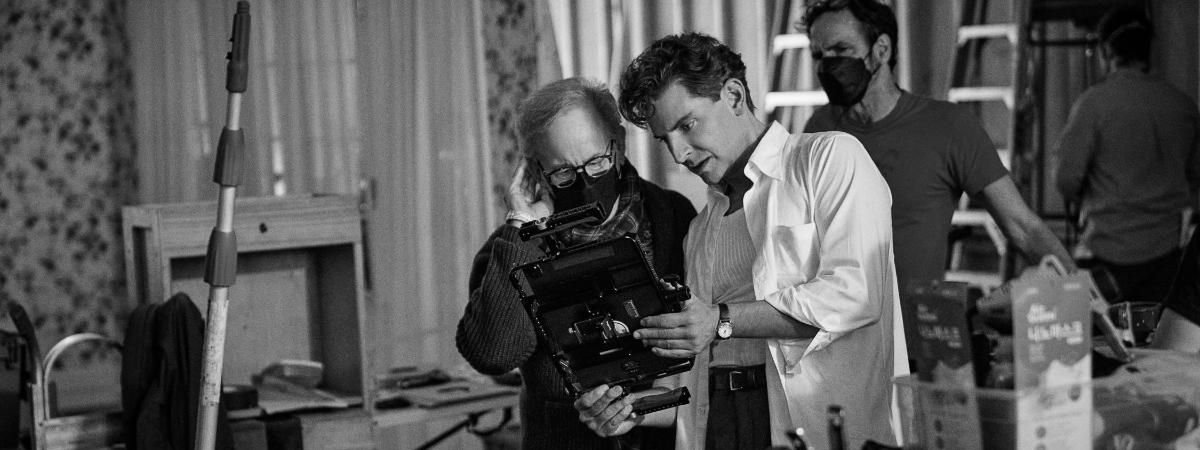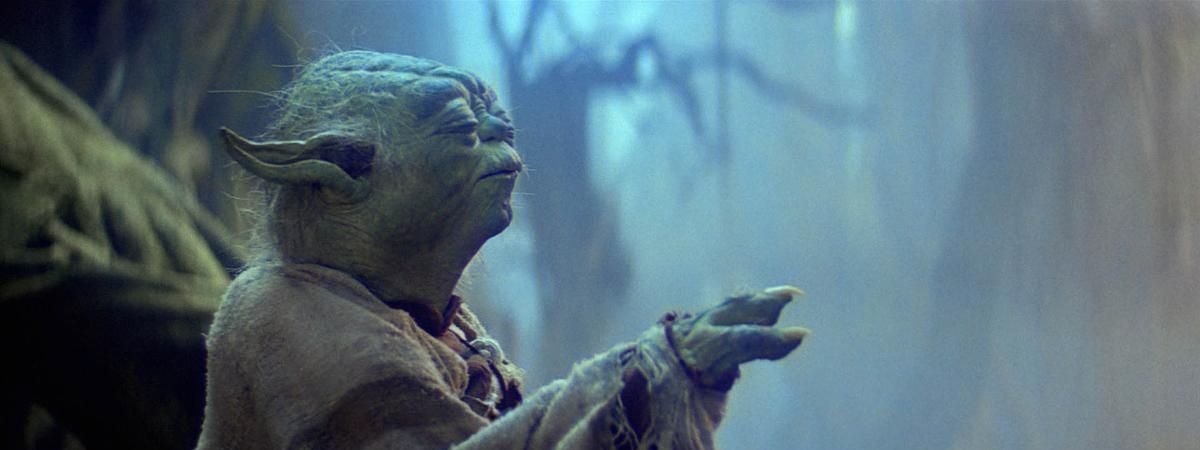Skip to the good bit
ToggleWe explore Spielberg’s remarkable filmography, which includes a diverse range of genres, with each movie leaving a unique stamp on Hollywood. From the thrilling adventure of “Jurassic Park” to the poignant historical narrative of “Schindler’s List,” his works are not just films but cultural milestones. Spielberg’s contribution to the film industry extends beyond his directorial achievements, with his role in co-founding powerhouse studios such as DreamWorks Pictures. Through each scene and storyline, Spielberg crafts more than entertainment; he weaves threads of imagination, humanity, and innovation into the tapestry of cinema.
Early life and education
We’re about to take you on a journey through the early chapters of Steven Spielberg’s life, where his unique talents began to emerge. From his imaginative childhood to his formative college years, these periods shaped his eventual cinematic genius.
Childhood

Steven Spielberg was born in Cincinnati, Ohio, on December 18th, 1946. His early years were marked by a fascination with filmmaking, a passion he pursued relentlessly. By his teens, he had already created several films, including a war movie at 16 years old, which garnered attention and won first prize at a festival. Spielberg’s childhood experiences often served as a creative wellspring for his future work, foreshadowing a legendary career in filmmaking.
College years
In 1965, Spielberg commenced his college education at California State University, Long Beach. His time in college, however, was cut short as he decided to drop out and pursue his career. Despite his brief academic stint, Spielberg returned to complete his degree much later in life, exemplifying a commitment to his educational roots. This detour to follow his filmmaking passion led him down a path to become one of Hollywood’s most successful directors.
Career beginnings
In our exploration of Steven Spielberg’s illustrious career, it is essential to trace his steps right from the beginning when his unique vision manifested through his early projects, leading up to his extraordinary breakthrough.
First projects
Steven Spielberg’s entry into filmmaking was as precocious and inventive as one would expect from such a storied director. As a teenager, he crafted 8 mm amateur films, essentially the building blocks of his directorial sensibility. At just 16, he wrote and directed “Firelight,” a science fiction film which later inspired his blockbuster “Close Encounters of the Third Kind.” That early project afforded Spielberg an impressive $1 from ticket sales at his local cinema – indicative of his inherent storytelling appeal.
Breakthrough
Spielberg’s major breakthrough can be pinpointed to a single, impressive outing – directing the TV film “Duel” in 1971. This gripping thriller about a businessman terrorized by a malevolent truck driver on remote highways demonstrated Spielberg’s knack for suspense and emotional storytelling. Initially aired on television, “Duel” was well-received and later released in cinemas internationally. This early success paved the way for his first feature film, “The Sugarland Express,” and set the stage for the monumental “Jaws,” which would forever change the landscape of American cinema.
Major films and achievements
In this section, we’ll explore some of Steven Spielberg’s most memorable movies and his collection of industry accolades that have cemented his position as a luminary in the film world.
Iconic movies
Throughout his distinguished career, Steven Spielberg has directed many films that have impacted cinema. Here are a few standout titles:
- Jaws (1975): The suspenseful thriller introduced the horrors lurking beneath the ocean’s surface, which is also featured in our best thriller movies of all time.
- E.T. the Extra-Terrestrial (1982): This heartwarming story of friendship between a boy and a stranded alien remains a cherished classic.
- Jurassic Park (1993): Spielberg awed us with this groundbreaking film that brought dinosaurs to life with stunning visual effects.
- Schindler’s List (1993): A poignant and haunting depiction of the Holocaust that earned Spielberg his first Academy Award for Best Director.
His involvement in these and other big-screen ventures has given audiences a gateway to new worlds and stories.
Featured in: Must-watch war movies (Saving Private Ryan & Schindler’s List)

Awards and nominations
Spielberg’s films have garnered numerous prestigious honors, elevating him among history’s most celebrated filmmakers. Let’s highlight a few of his achievements:
- Academy Awards: He’s received three Oscars, with two for Best Director for Schindler’s List and Saving Private Ryan, and one for Best Picture for Schindler’s List
- Directors Guild of America: Four DGA Awards testify to his influence and excellence in directing.
- BAFTA Awards: Spielberg has also been recognized with two BAFTA awards, illustrating his international acclaim.
These accolades are a testament to Spielberg’s talent and ability to connect with audiences and critics.

Personal life
In exploring Steven Spielberg’s personal life, we’ll take a closer look at his family dynamics and his commitment to philanthropy – elements that, while personal, have had significant public resonance.
Family
Steven Spielberg was born on December 18, 1946, into a Jewish family in Cincinnati, Ohio. He married actress Amy Irving in 1985, and although their marriage ended in divorce four years later, it resulted in one son. Spielberg remarried in 1991 to actress Kate Capshaw, whom he met when she starred in “Indiana Jones and the Temple of Doom.” They have a blended family of seven children – including those from previous relationships and adopted children. As a father, Spielberg has often been private about his family life.
Philanthropy
Spielberg’s generosity has been evident through his numerous philanthropic endeavors. He co-founded the “Starlight Children’s Foundation” which helps critically ill children, and “The Righteous Persons Foundation,” which supports projects that revitalize Jewish culture. Perhaps most notably, after directing “Schindler’s List,” Spielberg established the “Shoah Foundation,” dedicated to archiving testimonial histories from Holocaust survivors and witnesses to educate and combat intolerance. His philanthropy emphasizes making a difference across various humanitarian and educational areas.
Spielberg Q&As
This section will explore some of the most common inquiries about Steven Spielberg, including his comprehensive filmography, collaborations with actors, accolades, top films, career challenges, and net worth.
What is the complete filmography of Steven Spielberg?
Steven Spielberg’s filmography is extensive, with over 140 movies encompassing various genres and unforgettable stories. His directorial works span decades, from the 1970s with hits like ‘Jaws’ and ‘Close Encounters of the Third Kind’ to recent productions such as ‘Ready Player One’.
Which actors were frequently cast in childhood roles by Steven Spielberg?
Spielberg is known for his talent in directing young actors. Notably, he has often worked with actors like Drew Barrymore, who starred in ‘E.T. the Extra-Terrestrial’, and Henry Thomas, who played the lead role in the same film. His ability to elicit natural performances from child actors is part of what has made his films so enduring.
How many Academy Awards has Steven Spielberg won?
Steven Spielberg has been honored with multiple Academy Awards over the course of his career. To date, he has won three Oscars: Best Director for ‘Schindler’s List’ and ‘Saving Private Ryan’, and Best Picture for ‘Schindler’s List’.
What are Steven Spielberg’s best movies?
While opinions on Spielberg’s top ten films may vary, specific titles frequently appear on such lists. These often include classics like ‘Schindler’s List’, ‘Jaws’, ‘E.T. the Extra-Terrestrial’, ‘Jurassic Park’, ‘Raiders of the Lost Ark’, and ‘Saving Private Ryan’, amongst others.
What were the struggles Steven Spielberg faced during his career?
Despite his remarkable success, Spielberg faced several challenges. He had to overcome initial industry skepticism, as seen with the strenuous production of ‘Jaws’, which faced technical problems and budget overruns. His evolution as a filmmaker also saw him tackling more serious subjects, a shift from his earlier blockbuster work.
What is Steven Spielberg’s net worth?
As of our knowledge cutoff date, Steven Spielberg’s net worth is estimated to be several billion dollars. His wealth comes from his successful films and his role as a producer and co-founder of major entertainment companies like DreamWorks.









